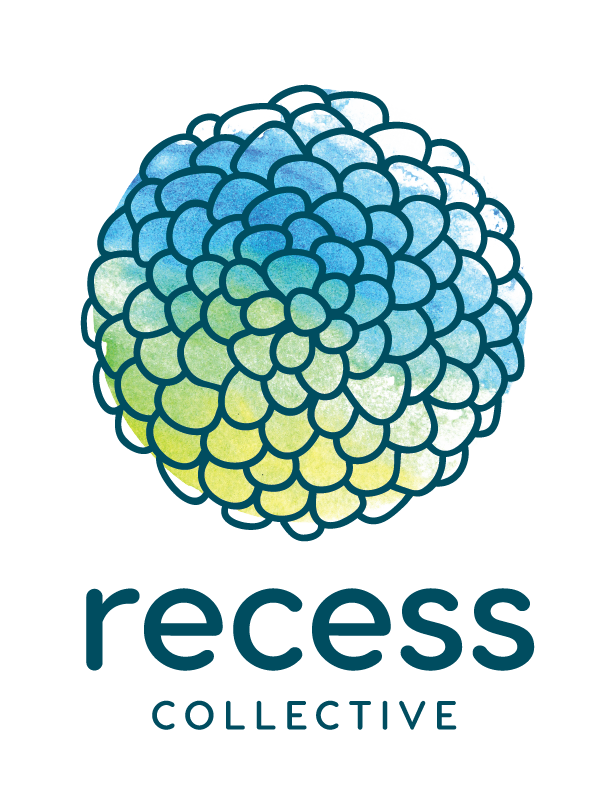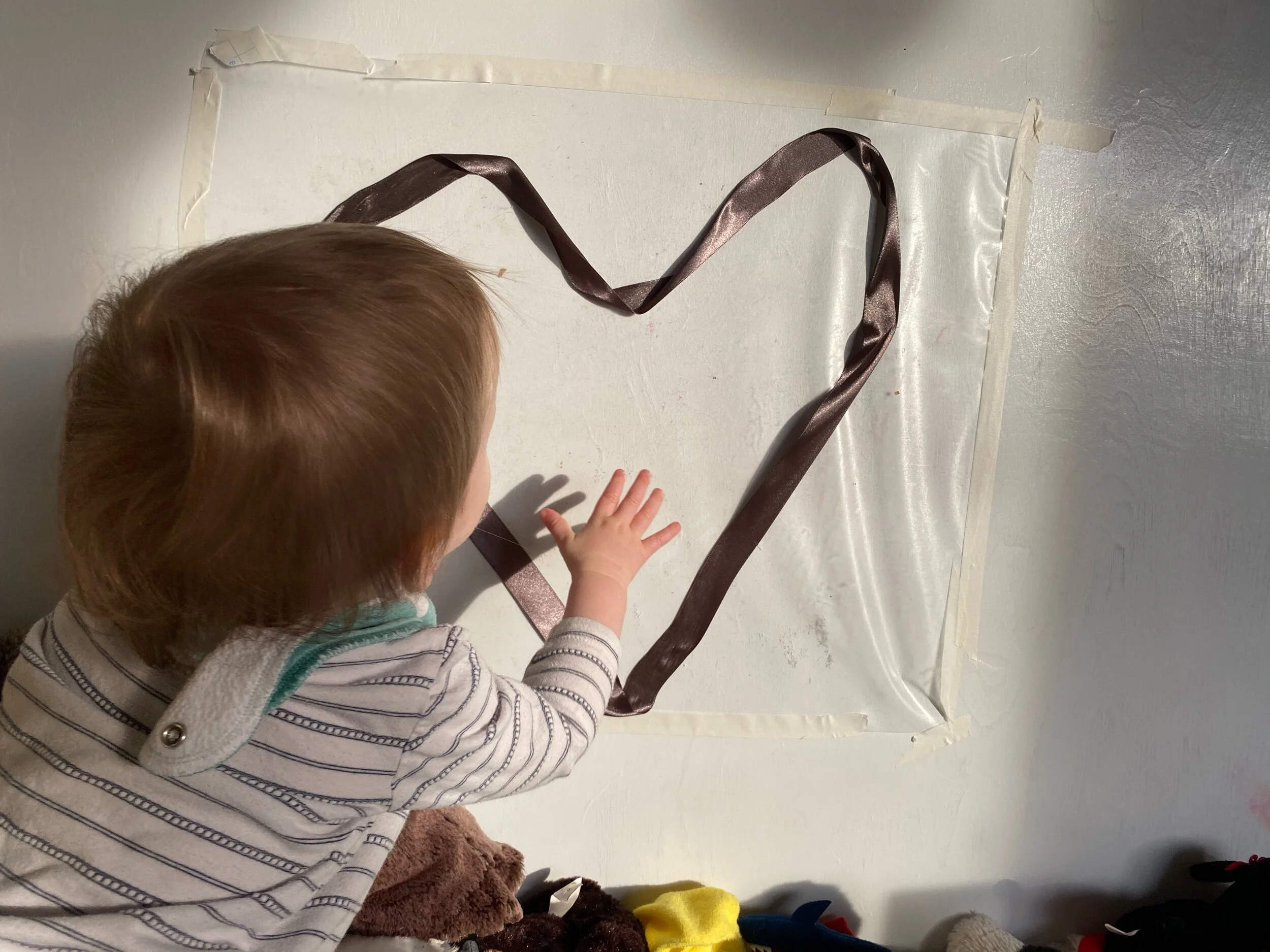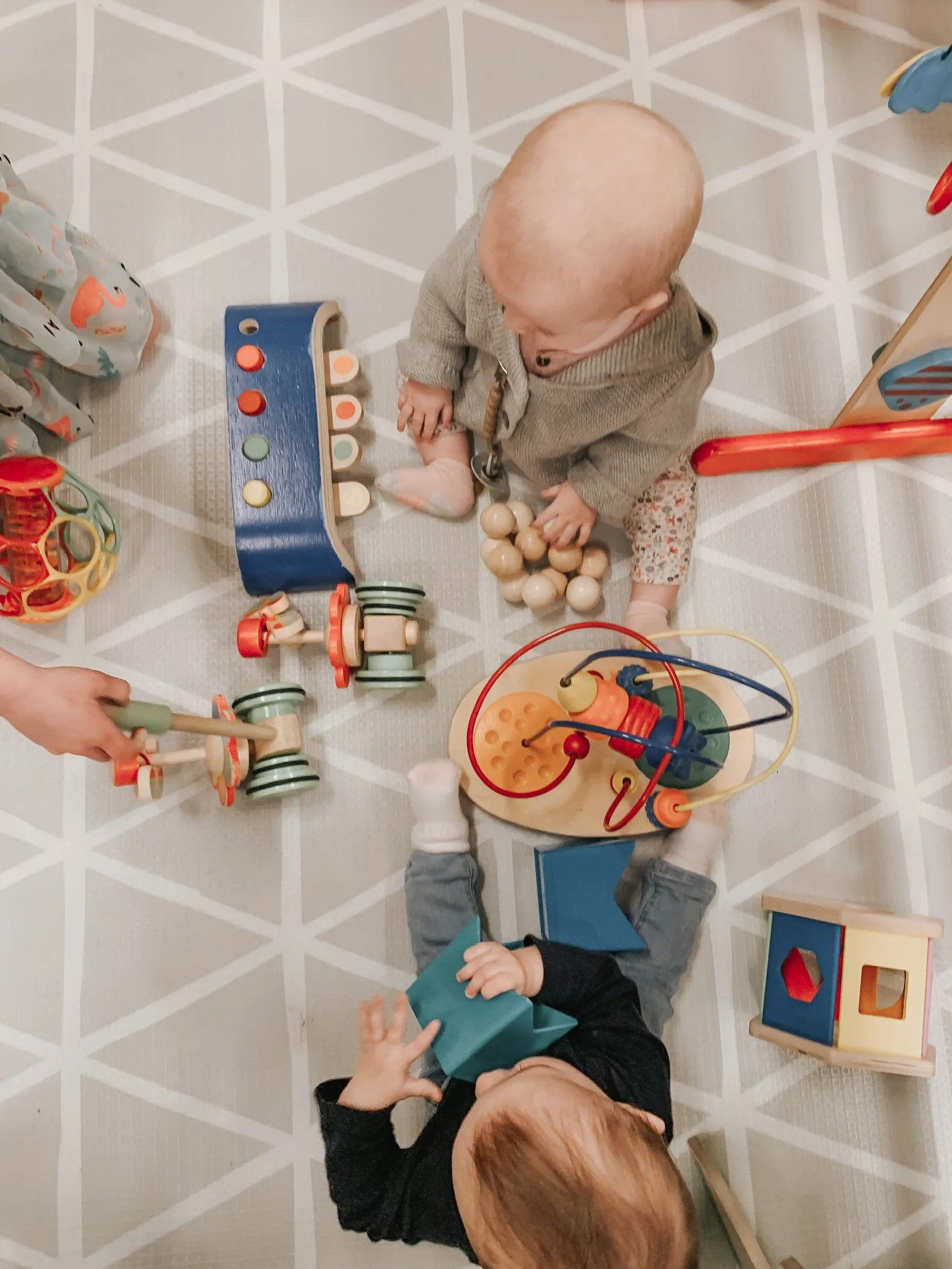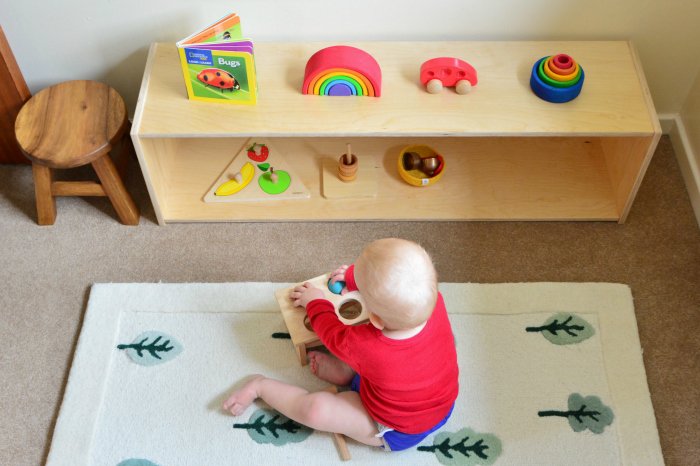Do less, observe more, enjoy most. - Magda Gerber
Children's brains are truly fascinating. They are constructing knowledge about their world from day one, and when given the opportunity to explore, they learn even more. It may seem counterintuitive, but allowing a child (yes, even a very young infant!) the space and freedom to play autonomously, and narrowing our role as parents to one of "observer" is a powerful shift.
As simple as it sounds, taking a step back, and truly letting your child be can feel surprisingly difficult. If you're anything like me, you probably have an impulse to assist babies, to teach them "how" to use a toy, and to lead them through ways they can (should?) play.
You might hear yourself taking the lead and informing your child, "this block goes on top of this one," "Look at how neat this is," etc. But when we intentionally stop and let them do the discovering it's pretty incredible what starts to happen!
Observation helps us to understand what they are communicating, it allows us to realize the difference between our babies’ needs and our projections, to figure out what they’re really up to and know whether to intervene or stay out of their way. It's nuts how often staying out of their way is actually an option!
If you are interested in learning more, check out two of our favorite resources.
Creating a “Yes Space”
Learn more about how to create a "Yes space" in your home for a child to safely explore.
A YES space is a gift to both children and their parents. It offers children ownership of a safe place that encourages play, learning, creativity, agency, and a strong sense of self. Parents get to enjoy one the great pleasures of parenting – observing their infant or toddler as they explore and master the world around them. Janet describes YES spaces in form and function, dispelling some common misconceptions and sharing tips about how children and parents can benefit the most. Learn more
Respectful Parenting
Gain a beautiful context for supporting infants development from one of the pioneers in the field Magda Gerber.
The basis of Magda's Gerber's RIE philosophy is respect for, and trust in the baby to be an initiator, an explorer, and a self learner.
I LOVE her thoughts on toys and play. Do check them out here if you have an infant in your life.
"One of the greatest gifts Magda bestows on us is the knowledge that infants are self-learners. And this is how a parent or caregiver spells relief. Self-learning means we don’t need to provide any lessons for a baby, and we need not feel pressured by developmental timetables. Infants are internally motivated to learn the things they need to learn: motor skills, communication, problem solving.
We provide the foundation of a secure relationship with a caring adult, a safe environment conducive to exploration and discovery, and let nature takes its course. We never have to worry that we are not doing ‘enough,’ or that the child isn’t doing ‘enough.’ Whatever a healthy infant or toddler chooses to do in his safe environment is the perfect curriculum for him on any particular day. We let go of ‘doing’, and are left with observing, learning, enjoying."
-Janet Landsbury












